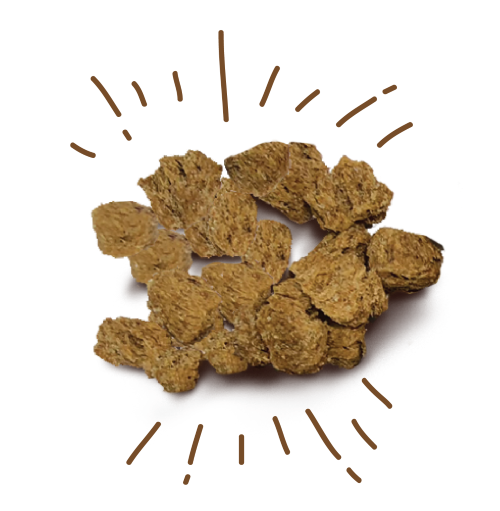Bernie’s Perfect Poop may help manage dog diabetes symptoms
 When your dog has diabetes, it can be serious. The healthy ingredients in Bernie’s Perfect Poop can help regulate weight and blood sugar levels and that can help manage diabetes symptoms.
When your dog has diabetes, it can be serious. The healthy ingredients in Bernie’s Perfect Poop can help regulate weight and blood sugar levels and that can help manage diabetes symptoms.
- Good dog gut health is critical for your dog’s overall health. When your dog’s gut is healthy, your dog is healthier. Especially when it comes to diabetes, gut health is important so your dog can absorb all the nutrients he should from food.
- Food and diet impact your dog’s weight and diabetes propensity and symptoms. The high-quality fiber in Bernie’s Perfect Poop not only helps them maintain a healthy weight, but moves food through their digestive tract at the appropriate speed. This slower, more regulated speed slows the digestion of carbohydrates down. That means there are fewer raid releases of glucose into your dog’s bloodstream and their diabetic symptoms are regulated. Bernie uses the perfect combination of Miscanthus grass, flaxseed and pumpkin seed for fiber, which helps prevent sugar spikes for your dog.
- Bernie’s Perfect Poop combines prebiotics and probiotics to help create the perfectly balanced gut microbiome. When your dog’s microbiome is in shape, the right balance of good bacteria exists and keeps harmful, pathogenic bacteria out. This means your dog can absorb the nutrients he should from his food, and this helps regulate his blood sugar levels.
- Each cell in your dog’s body needs nourishment and nutrients. This is especially so if your dog has diabetes. Dogs with diabetes have a difficult time metabolizing the nutrients from the food you give them, They also have a hard time regulating their sugar and insulin levels as a result. When you give your dog Bernie’s enzymes, help encourage optimal nutrient absorption and metabolization by breaking food down. This means better overall health and weight for them as well.
- Bernie’s Perfect Poop is a 4-in-1 combination of fiber, prebiotics, probiotics, and enzymes. Good dog gut health is the key to a happier, healthier life for your dog, and that is especially important when your dog has diabetes. Regulating your dog’s nutrient absorption and blood sugar is easier when their gut is healthier.



